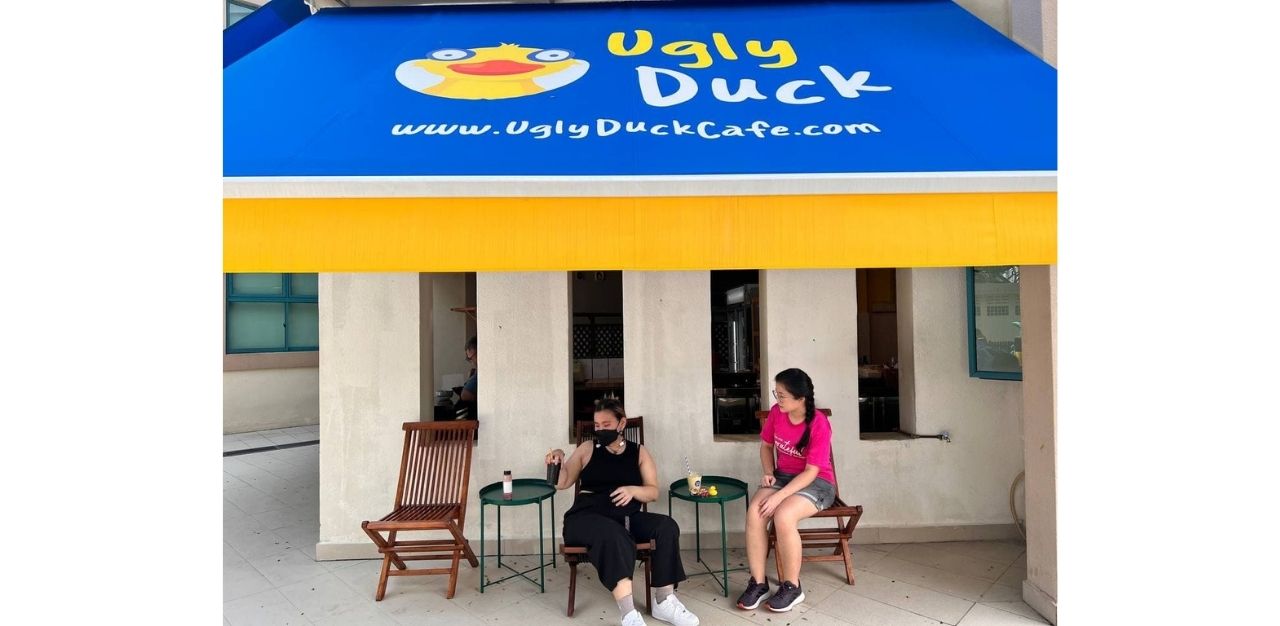Co-founder of UglyFood Yeo Pei Shan has left the enterprise she helped create to develop Ugly Duck Cafe, which encourages the upcycling of blemished to produce nut milk pulps and cold-pressed juices.
As its business development manager, Ms Yeo brings with her the takeaways from her time with UglyFood. She now focuses on food research and development, the cafe’s interior design, and the grocer sections of the business.
Ms Yeo started UglyFood when she was still a student at the Singapore University of Technology and Design (SUTD). She and her co-founders were part of a programme by the SUTD-MIT International Design Centre, which was formed in partnership with the JP Morgan Foundation to encourage students to form their own social initiatives.
The aim of UglyFood is to reduce overall food waste in Singapore by shedding light on direct trips that ugly produce takes from farm to trash, despite being perfectly edible.
After graduating in 2018, Yeo decided to turn her school project into a full-time job.
But Ms Yeo left the team in February 2021 after almost three years to explore other opportunities in the food sustainability space, beyond surplus and ugly produce, she says.
“I started UglyFood with the intention of reducing food waste, but I was not skilful in building a team with the foundation and culture I envisioned,” she says, citing that she left the team “with a heavy heart”.

Now at Ugly Duck Cafe, Ms Yeo personally innovated the idea of incorporating nut pulp into its Taiwanese Cold Noodle’s sesame sauce, as well as its Nutcracker Acai Smoothie. Blemished vegetables and fruits are shredded and frozen respectively for better presentation.
One of their flagship dishes, the Taiwanese cold noodles (right), uses sesame sauce made from upcycled nut milk pulp, topped up with blemished or ‘ugly’ greens.
But its work goes beyond proving that ugly food tastes just as good as the better looking ones. Founder, Quan Ong, has a vision to use the cafe as a platform for community engagement. The team’s long term plans include hosting workshops in collaboration with Queenstown and other community centres to teach participants how to make full use of different types of food waste.
“We want to make it homely and welcoming so that people can learn more about sustainability by just being in the cafe, through the gentle nudging of our posters,” says Ms Yeo. “We have a bag sharing initiative where people can donate their clean tote bags, and patrons who did not bring their own bags (BYOB) can easily take a donated bag instead.”
Patrons can also look forward to an on-site grocery section featuring imperfect or surplus produce from wholesalers and online supermarkets. Moving with the times, they have also made online grocery shopping an option via mobile app, Treatsure.
Join the conversations on TheHomeGround Asia’s Facebook and Instagram, and get the latest updates via Telegram.














